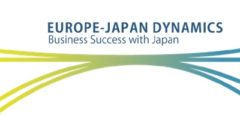I had an opportunity to interview with Mr. Anthony LOW, VP, Asia, Oceania and Africa Region of Nestlé.
I was particularly interested in discovering the keys to success in marketing in the regions that have diversified consumer markets, including Japan. Japan is known to be a unique market for its consumer taste and preferences in the food business.
I found there was no miracle. Keys to success were but the very basics of marketing, i.e. the trust, quality, customer insights and long-term interests.
So what’s new?
Yes, there is the reason why Nestlé excels and that lead the company to a remarkable success, the thoroughness. The company’s “Can do” attitude, supported by the thoroughness led to breakthrough in its marketing.
I was happy to be assured that one may succeed in challenging markets by pursuing without compromise to the basic values of marketing, i.e. trust, quality, customer insights and long-term interests. It is not a coincidence that these values are common to the underlying principles of the corporate social responsibility (CSR).
Here is my note:
Keys to success
Customer first, “Can do” attitude = Never say, “No”.
- To meet customer requirements in Japan, Nescafé, we changed the product. Changed its recipe from “Instant coffee” to “Regular coffee”.
- Barista Ambassador – To facilitate access to Nescafé in offices (where tea and coffee is served less and less, due to limited budget, economic recession, etc.), offered Barista machine free of charge, including service. The customers buy the coffee products or refill from Nestlé.
- Test market – Hokkaido. Market size is appropriate.
- Shrinking population how do you grow business where the population is shrinking? Aging Elder people’s market.
- Visited and listened to the elderly people. Found that loneliness is their major problem. Created “Nestlé wellness club”. With a small membership fee, send a doctor and dietitian to home.
- Test market – Hokkaido. Market size is appropriate.
- Trust, quality and market insights
- To find a new market in a country where you are for more than 100 years. Creativity. Never say, “No”.
Build the trust with consumers
- Marketing strategy is different in each country in the AOA Region. cf. Europe – one common market
- There are 115 countries in the AOA Region.
- There are over 450 different Nescafé’s worldwide.
Long-term strategy
E.g. In India, Nestlé supports WHO to promote the breast feeding. It is not for an immediate benefit. If some mothers could not continue breast feeding, they buy Nestlé’s milk product. Nestlé infant formulae is close to mother’s milk.
“Romance the product”. Nestlé’s marketing strategy
- Market test — Nestlé requires 60:40 preferences of Nestlé products over competition
“Then, we ‘romance’ the product to the truth.”
i.e. to make the truth to come to the life.
- To find an answer to the question, “Why is this product perceived to be better than competition?”
- If consumers says “this chocolate tastes fresh”, to find why is “fresh” important?
Re. Japanese market

- MUST know how to do business in the local market
- Perceived value is the key, e.g. Nescafé vs. Starbucks
- MUST build the perception on quality. No failure is allowed. Must constantly work on the quality.
- Nestlé’s response to the local market, Special-T. A system for the Japanese tea lovers to enjoy good tea without following a procedure to prepare a good tea.
- An example of adapting to the taste of local market.
- Originally tried with black tea but failed. Found that The Japanese wanted to take the green tea that match individual taste.
- You can’t do cheap business in Japan. Currency rate is not in our favour while price of imported materials are rising (e.g. Cacao).
- We can’t compete over the price. We create premium values.
- Japanese consumers pay for the premium.
- E.g. Kitkat – Those that use local materials cost less than others that use much Cacao.
- Appeals to the emotion
- Pepper – a robot that reads 80% of your emotion. It selects the best coffee for you. Technology invented in France, produced in Taiwan and the license bought by Softbank (one of the leading mobile phone operators known to be vanguard market strategy in Japan.
Nestlé
10:30 – 13:00, Vevey, 18 March 2015

